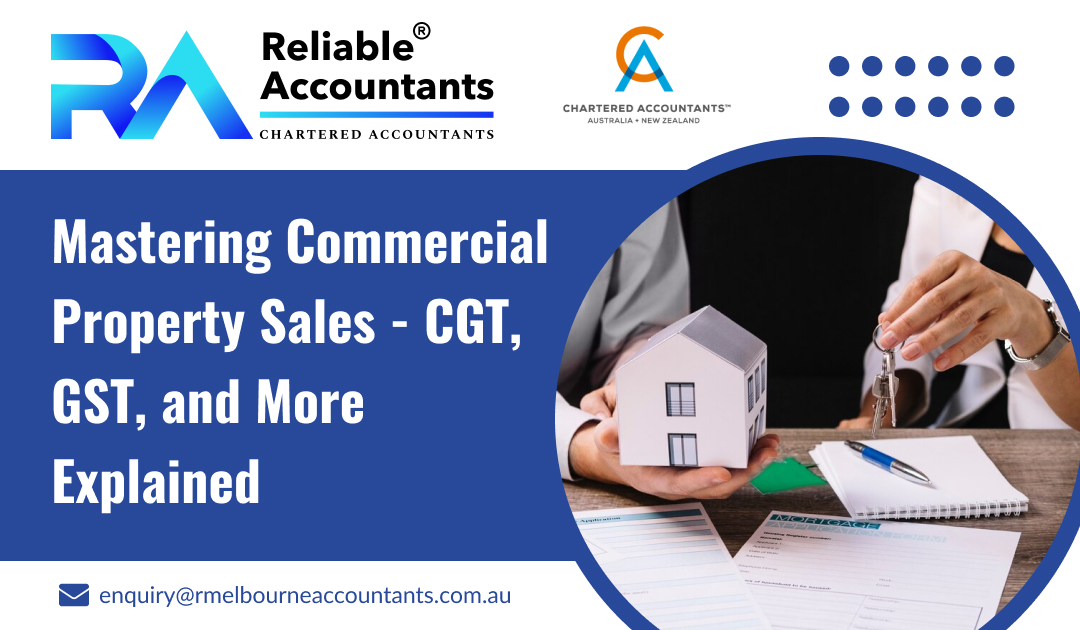It’s a financial decision that can lead to capital gains or losses. When you make a net capital gain, you’re liable for capital gains tax, CGT. But don’t worry there might be discounts and concessions for individuals, trusts and small businesses. You are usually liable for GST on the sale price and you can claim GST credits on associated purchases.
Capital Gains Tax and Commercial Premises
A capital gain or loss is the difference between what it costs you to acquire and improve the property (the cost base), and what you get after selling (or otherwise dispose) it. If you make a net capital gain in an income year, you’ll be subject to capital gains tax (CGT). If you make a net capital loss you can forward it and make deductions from your capital gains in later income years.
Claimed amounts as deductions will be excluded from the cost of property. If you obtained the property prior to the capital gains tax came into effect on September 20, 1985, any capital gain or loss will be disregarded. However, capital gains or losses from capital improvements done since September 20, 1985, are liable for CGT, even if you obtained the property prior to the date.
Discounts and Concessions
If you’ve owned the property for at least 12 months, you could be eligible for a 50% discount on your capital gain. Small businesses have even more options such as:
- 15-year exemption
- 50% active asset reduction
- retirement exemption
- and rollover
GST on the Sale of Commercial Premises
Selling commercial premises usually involves GST on the sale price. It means you:
- may use the margin scheme, where you have to pay GST of 1/11 of the sale price rather than 1/11 of the aggregate selling price
- are liable to claim GST credits on your purchases that are related to selling the property (liable to the normal rules on GST credits) – such as the GST included in the fees of real estate agents.
When you sell the property as part of a GST-free sale of a going concern, then GST doesn’t apply to the property. If your commercial property has been leased when you sell it, you can treat your sale as a GST-free supply of a going concern.
Margin Scheme
You may be able to use the margin scheme which calculates GST differently. The margin scheme calculates GST as 1/11 of the margin on the sale price. If the sale is taxable, you are allowed to apply the margin scheme. The margin is the difference between the sale price and either:
- the paid amount for the property
- suitable property valuation.
This can be a tax-efficient option depending on how and when you purchase the property. In case you sell the property using the margin scheme, the purchaser can’t claim any GST charged.
Registering for GST
If you’re involved in property transactions, you might need to register for GST depending on your turnover from these activities.
Selling a Business As a Going Concern
A sale of a going concern can be GST free with both the seller and buyer enjoying GST benefits on associated expenses. There are specific criteria to meet for this to apply:
- for the supply, payment is made
- the buyer is registered or has to be registered for GST
- the seller and purchaser have agreed in writing that the sale is of a going concern
- the supplier produces all the things important for the continued operation of the business
- the supplier runs the business until the day of supply.
Property, which is a part of a sale of a going concern can include:
- the premises along with the assets and the business’s operating structure
- a fully tenanted building, where the property and all agreements, leases, and covenants are included in the sale
- the sale of a partially tenanted building, where the following conditions apply:
- the vacant portion of the building is either actively advertised for lease or undergoing refurbishment or repairs
- all agreements, leases, and covenants are included in the sale.
Conclusion
We’re here to help you navigate the complexities and make the most of your investments. You can speak to Reliable Melbourne Accountants for further details.
More useful Links:
Accountants Small Business
Accounting Firm Melbourne

